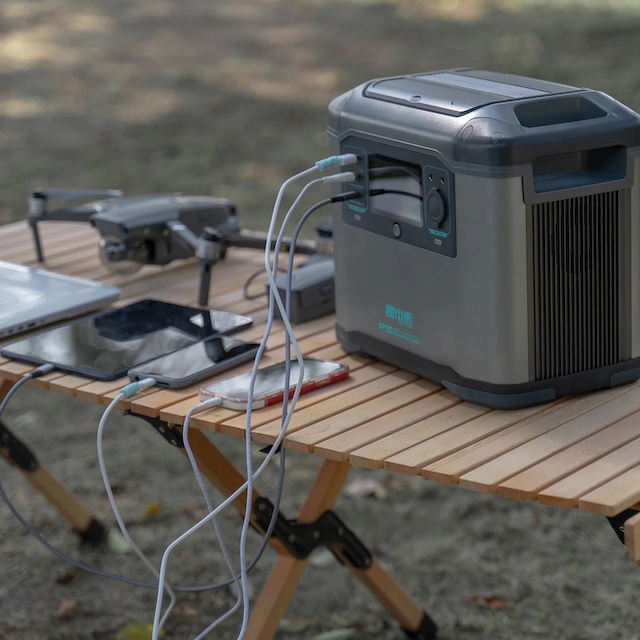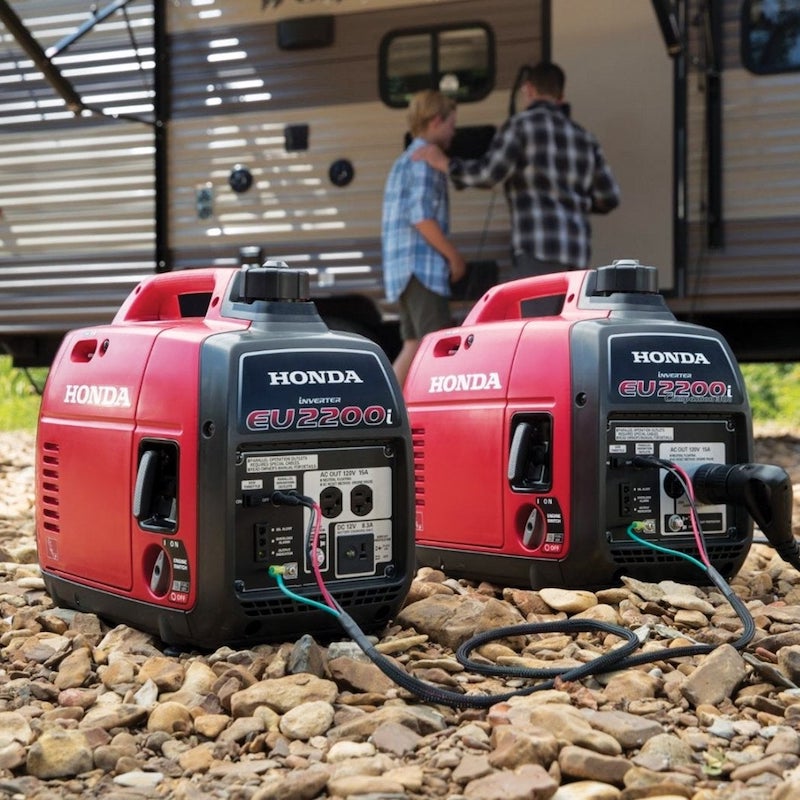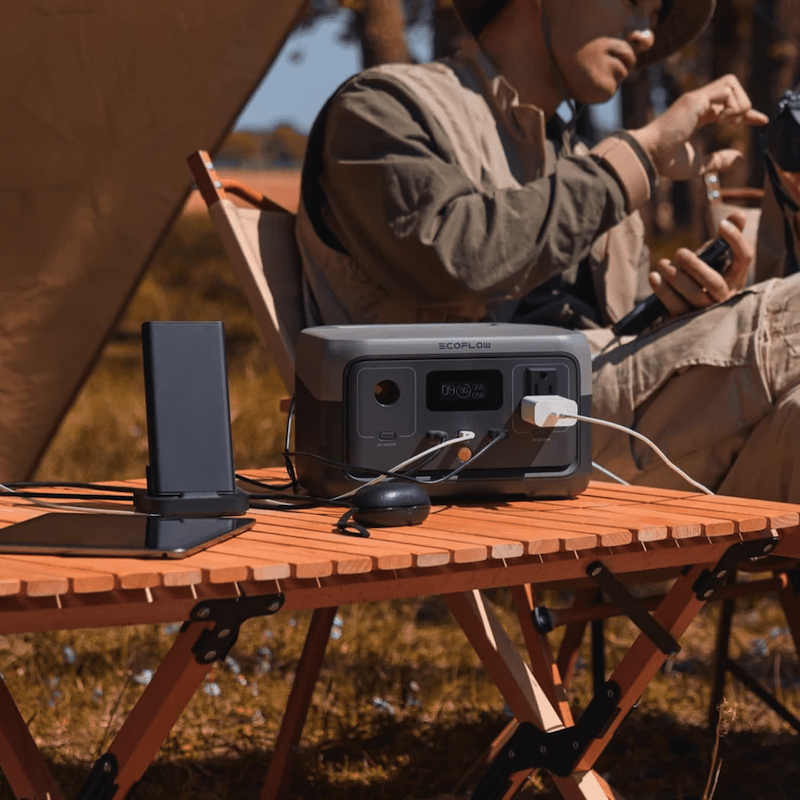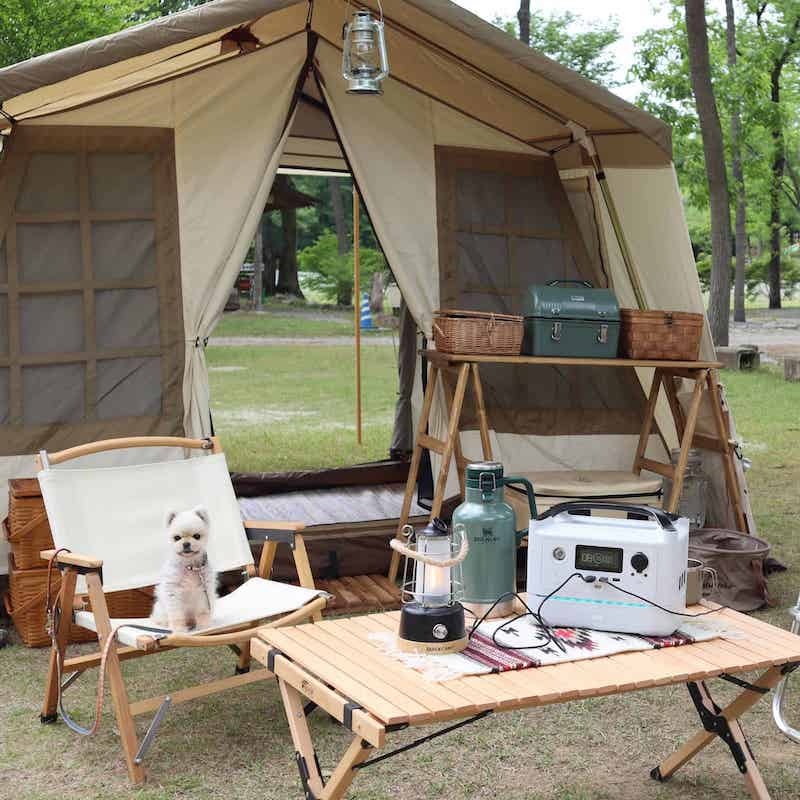Introduction
Camping is a popular outdoor activity that allows people to escape the hustle and bustle of everyday life and connect with nature. While camping offers a chance to unplug and unwind, some modern comforts, such as lighting, charging devices, and running appliances, can make the experience more enjoyable. This is where the camping generator comes into play, offering a reliable power source for various camping needs. In this article, we will explore the different types of camping generators, their features, and how to choose the best one for your outdoor adventures.
Part 1: Understanding Camping
A camping generator is a portable power source that can provide electricity while camping in remote areas where electrical outlets are not available. It can be used to power small appliances, charge electronic devices, and provide lighting while experiencing the great outdoors.
Level 1: What is a camping generator?
Camping generators are portable power sources that provide electricity for camping trips. They come in various sizes and power capacities, making them suitable for different camping needs.
Level 2: Types of camping generators
There are two main types of camping generators: inverter generators and conventional generators. Inverter generators are known for their quiet operation and clean power output, while conventional generators are more affordable but louder and less fuel-efficient.
Part 2: Power Capacity and Usage
There are several types of camping generators available on the market, including diesel, gasoline, propane, and solar-powered models. The size and power output of the generator will vary depending on the specific needs of the camper. Some generators are designed to be lightweight and easy to carry, while others may be larger and designed for more heavy-duty electrical needs.
Level 1: Determining power needs
Before choosing a camping generator, it’s essential to consider your power requirements. This includes calculating the wattage of the appliances and devices you plan to use while camping, such as lights, fans, chargers, and kitchen appliances.
Level 2: Matching power capacity
Once you have determined your power needs, you can match them to the power capacity of camping generators. Some generators are designed to power small devices, while others can handle larger appliances like air conditioners and refrigerators.
Part 3: Portable and Lightweight Design
When selecting a camping generator, it is important to consider the power output, fuel type, noise level, and overall portability. It is also essential to adhere to any local regulations or restrictions regarding the use of generators in camping areas.
Level 1: Importance of portability
When camping, it’s essential to have a portable and lightweight generator that can be easily transported to your campsite. Generators with built-in handles and compact designs are ideal for camping trips.
Level 2: Fuel efficiency and runtime
In addition to portability, fuel efficiency and runtime are crucial factors to consider. Look for camping generators with long runtimes and fuel-efficient engines to ensure uninterrupted power during your outdoor adventures.
Part 4: Noise Level and Emissions
One of the primary benefits of using a camping generator is the ability to power essential devices and equipment while camping. This can include running a small refrigerator to keep food and drinks cool, charging cell phones and other electronic devices, powering lights, running a fan or heater, and even using small appliances such as a coffee maker or electric grill.
Level 1: Quiet operation
One of the downsides of traditional generators is their noisy operation, which can disturb the peacefulness of a campsite. Inverter generators are known for their quiet operation, making them a popular choice for camping.
Level 2: Environmental impact
To minimize the environmental impact of camping generators, consider models that meet emissions standards and use eco-friendly fuel options. This ensures a more sustainable camping experience while reducing air and noise pollution.
Part 5: Additional Features and Considerations
Level 1: Built-in safety features
When choosing a camping generator, look for models with built-in safety features such as low oil shutoff, overload protection, and spark arrestors to prevent accidents and ensure safe operation.
Level 2: Parallel capability and connectivity
Some camping generators offer parallel capability, allowing you to connect multiple units for increased power output. Additionally, consider features like USB ports and RV-ready outlets for convenient connectivity with your devices and camping equipment.
Part 6: Choosing the Right Camping Generator
Level 1: Types of Camping Generators
When choosing a camping generator, it’s important to consider the type that best fits your needs. There are three main types of camping generators: inverter generators, conventional generators, and solar-powered generators.
Level 2: Considerations for Choosing a Camping Generator Type
Inverter generators are known for their quiet operation and clean power output, making them ideal for camping. Conventional generators are more affordable and are better suited for powering larger appliances. Solar-powered generators are eco-friendly and great for off-grid camping, but they rely on sunlight for charging.
Part 7: Factors to Consider When Buying a Camping Generator
Level 1: Power Output
One of the most important factors to consider when buying a camping generator is the power output. Determine what devices and appliances you’ll need to power and choose a generator that can handle the total wattage.
Level 2: Runtime and Fuel Efficiency
Consider the runtime and fuel efficiency of the generator. A longer runtime is ideal for extended camping trips, and fuel efficiency will save you money on fuel costs in the long run. Look for generators with eco-mode or energy-saving features to maximize fuel efficiency.
Part 8: Best Practices for Using a Camping Generator
Camping generators come in handy for providing power at a campsite, especially for those who want to enjoy some modern conveniences while being immersed in nature. These portable generators can be used to power up lights, charge electronic devices, or even run small appliances. They are also useful for keeping essential medical devices operating in remote locations. When choosing a camping generator, it’s important to consider factors such as size, fuel type, noise level, and power output. In addition, generators should be used responsibly to minimize their impact on the environment, and it’s important to follow safety guidelines to prevent accidents.
Level 1: Noise Control
When using a camping generator, be mindful of noise levels to respect your camping neighbors. Consider investing in a quieter inverter generator or use a generator noise reduction enclosure to minimize disturbances.
Level 2: Proper Maintenance
Regular maintenance is essential for the longevity and performance of your camping generator. Keep it clean, check the oil levels, and inspect the spark plugs and air filters regularly. Proper maintenance will ensure your generator is ready for use whenever you need it.
Conclusion
Having access to electricity can enhance the camping experience by providing modern conveniences and making it easier to stay connected with the outside world if necessary. It can also provide a sense of security and safety by allowing campers to power emergency communication devices or medical equipment.
However, it is important to use camping generator responsibly and considerate of other campers. Generators can be noisy and disturb the natural sounds of the environment, so it is essential to use them only when necessary and to be mindful of neighboring campers. Additionally, campers should be conscious of fuel storage and safety when using a camping generator to minimize the risk of accidents or environmental damage.
Camping generators are invaluable tools that provide reliable power for various camping needs, from lighting and charging devices to running appliances. By understanding the different types of generators, power capacity, portability, noise level, and additional features, you can choose the best camping generator for your outdoor adventures. Whether you enjoy car camping, RVing, or wilderness backpacking, a quality camping generator can enhance your camping experience and provide the comfort and convenience of home in the great outdoors.



